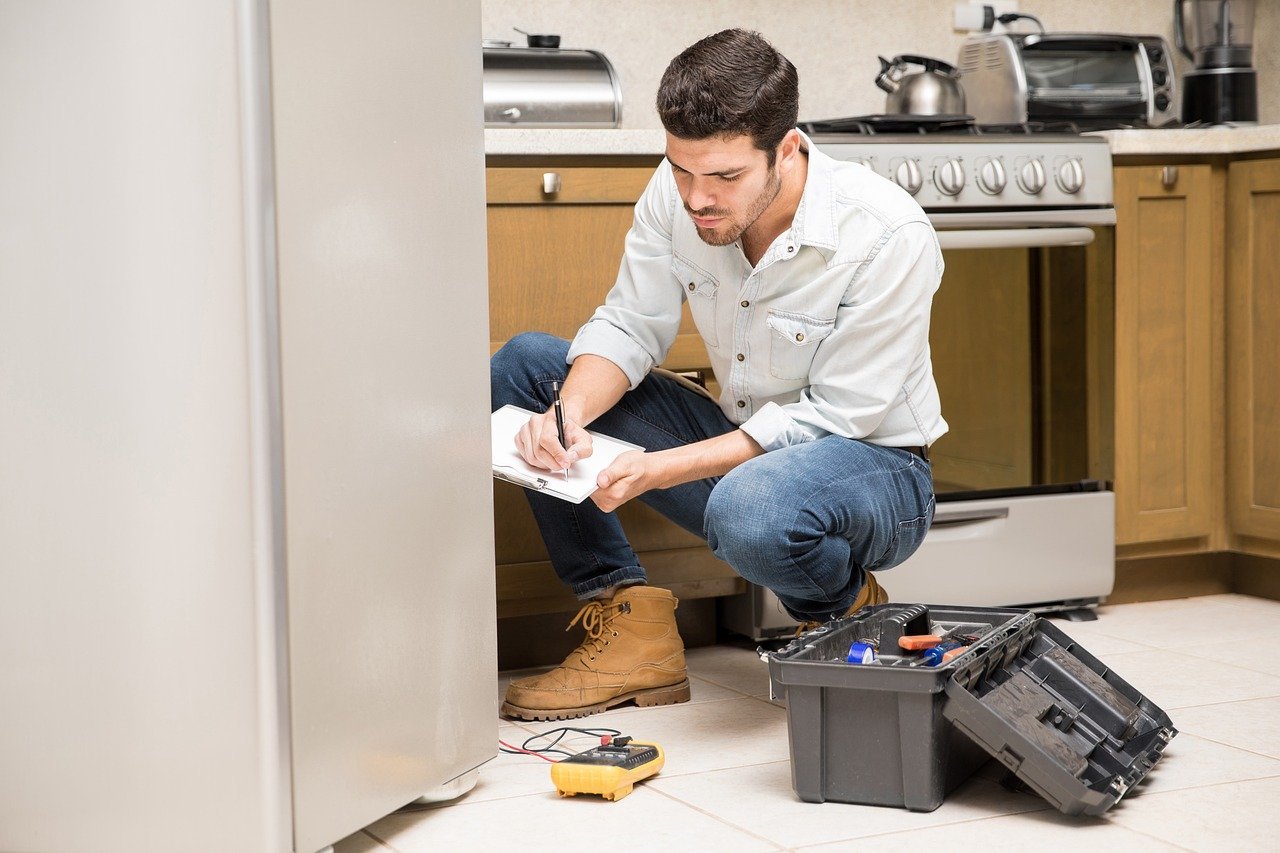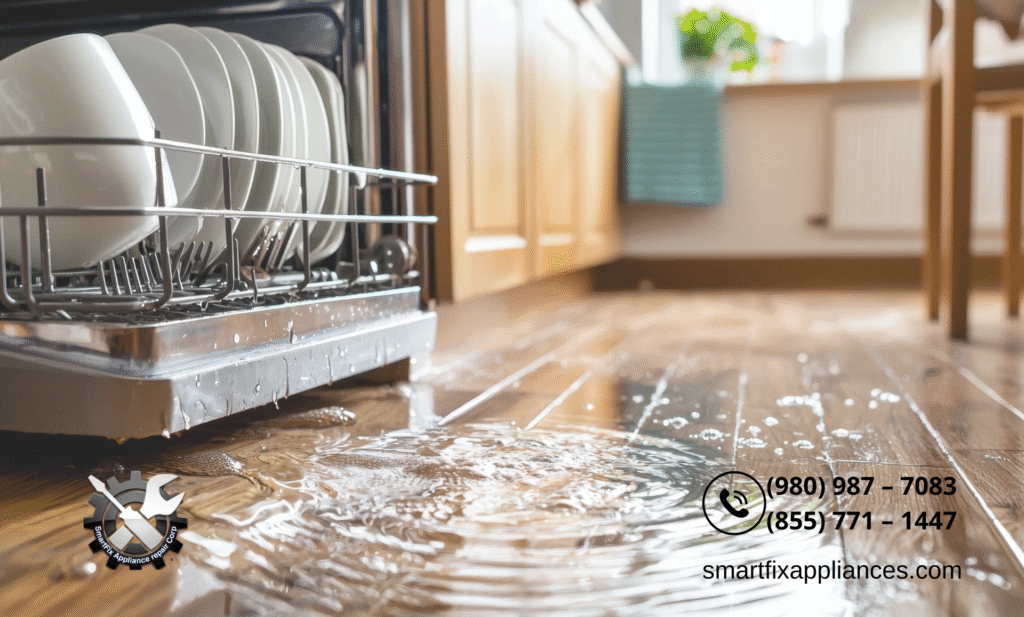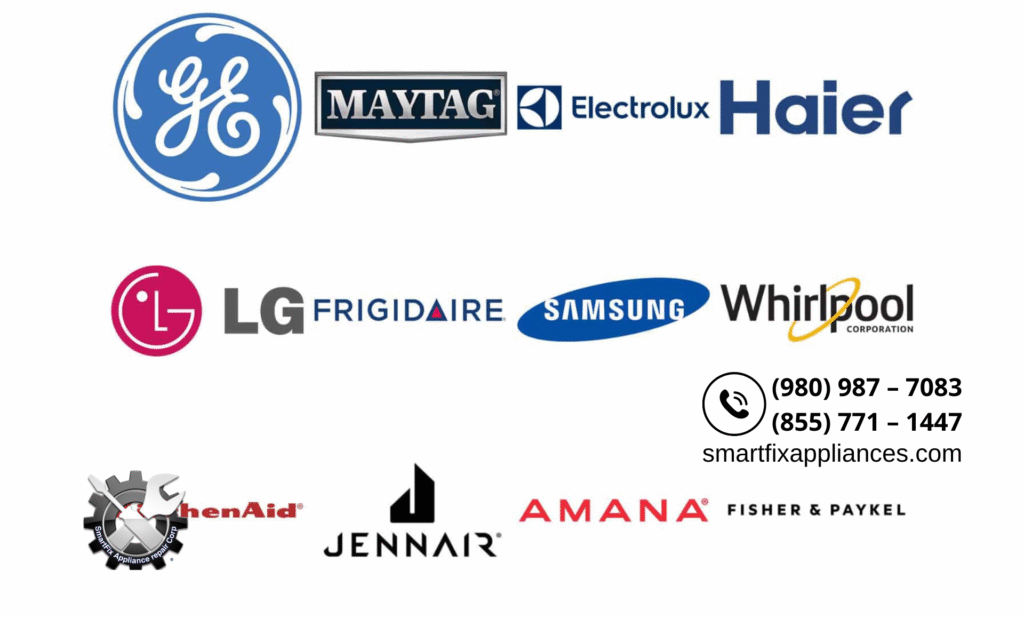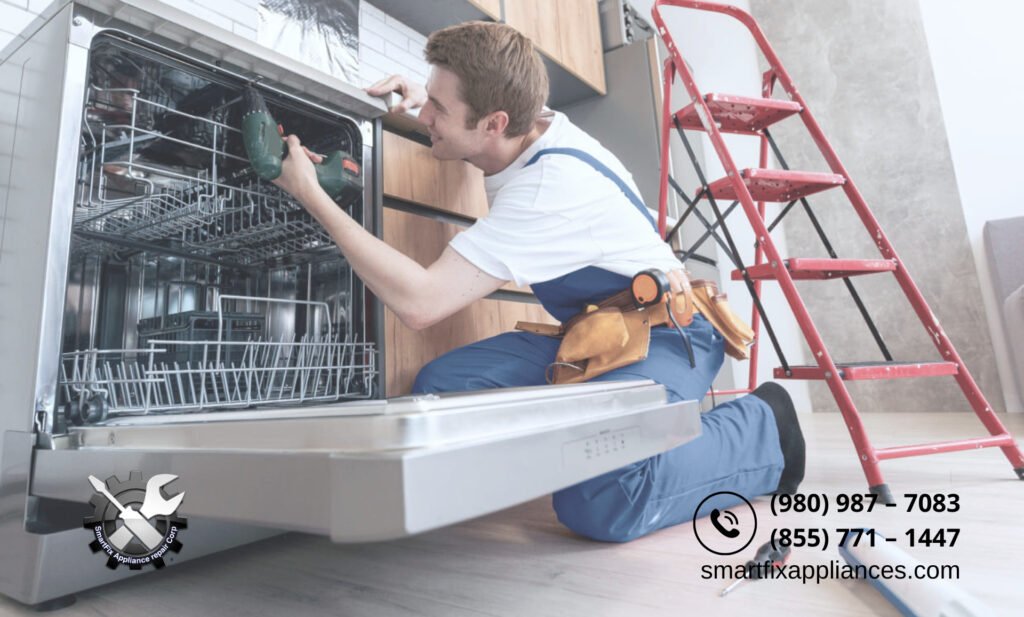What to Do If Your Refrigerator Compressor Feels Hot: A Guide by SmartFix Appliance Repair Corp

Your refrigerator’s compressor is the engine that keeps your food fresh and your drinks cool. When it’s running smoothly, you may not give it a second thought. However, if you notice that the compressor feels unusually hot to the touch, it could be a sign that something isn’t quite right. Ignoring this warning sign could lead to bigger problems down the line, including costly repairs or even the need for a replacement appliance.
In this article, we aim to demystify the phenomenon of a hot refrigerator compressor. We’ll delve into the inner workings of your fridge, exploring why the compressor might be heating up and what you can do about it. Whether you’re a homeowner concerned about the health of your kitchen appliance or a business owner managing a commercial refrigerator, our goal is to equip you with the knowledge and solutions needed to address this common issue effectively. So, let’s dive in and learn how to keep your refrigerator running smoothly and efficiently.
Understanding How the Refrigerator Compressor Works
Overview of the Compressor’s Role in the Refrigerator System
The compressor is the heart of your refrigerator, working tirelessly to keep your perishable items fresh and your beverages chilled. Its primary function is to circulate refrigerant throughout the cooling system, creating the ideal conditions for food preservation.
How the Compressor Operates and Why It Might Become Hot
The operation of the compressor is akin to a pump, albeit a specialized one designed for refrigeration purposes. It starts by compressing low-pressure refrigerant gas, causing its temperature to rise significantly. As the gas is compressed, its molecules become more densely packed, releasing heat energy in the process.
Once the refrigerant gas reaches a high enough pressure and temperature, it transitions into a liquid state. This high-pressure liquid then flows through the refrigeration system, absorbing heat from the interior of the refrigerator and cooling its contents in the process.
During this compression and heat exchange process, it’s normal for the compressor to generate heat. However, if the compressor becomes excessively hot to the touch, it could indicate underlying issues that need to be addressed promptly. Factors such as inadequate ventilation, overloading of the refrigerator, or malfunctioning components can all contribute to heightened compressor temperatures.
Understanding how the compressor operates and why it might become hot lays the groundwork for identifying potential problems and implementing effective solutions. In the next section, we’ll explore common reasons for compressor heat and discuss practical steps to address them.

Potential Reasons for Compressor Heat
Improper Ventilation
Proper ventilation is essential for the efficient operation of your refrigerator compressor. If the area surrounding the refrigerator is obstructed or lacks adequate airflow, the compressor may struggle to dissipate heat effectively. This can lead to a buildup of heat around the compressor, causing it to feel hot to the touch. Common culprits include placing the refrigerator too close to walls or other appliances, or allowing dust and debris to accumulate around ventilation grilles.
Refrigerator Overload
Overloading your refrigerator with food and beverages can place undue stress on the compressor, causing it to work harder than necessary. When the compressor is forced to run for extended periods to maintain cool temperatures amidst a heavy load, it can result in increased heat production. This excess heat can then manifest as a hot compressor. To prevent overload-related issues, ensure that your refrigerator is not packed to capacity and allow for adequate airflow between items.
Compressor Malfunctions
Like any mechanical component, refrigerator compressors are prone to wear and tear over time. Malfunctions such as worn-out motor bearings, faulty electrical components, or refrigerant leaks can disrupt the compressor’s normal operation and contribute to overheating. If you suspect that your compressor is malfunctioning, it’s essential to address the issue promptly to prevent further damage to your refrigerator.
Other Possible Causes
In addition to the aforementioned reasons, several other factors can contribute to a hot refrigerator compressor. These may include environmental factors such as high ambient temperatures, prolonged power outages, or an aging refrigerator system. Identifying and addressing these underlying causes is crucial for ensuring the long-term performance and reliability of your refrigerator.
How to Check and Address the Issue
Steps to Check the Compressor Temperature
- Safety First: Before touching any components of your refrigerator, ensure that it is unplugged from the power source to prevent any risk of electric shock.
- Locate the Compressor: Depending on the model of your refrigerator, the compressor may be located at the rear or bottom of the unit. It’s typically a large, cylindrical component with metal tubing attached.
- Touch Test: Gently place your hand on the surface of the compressor. If it feels excessively hot to the touch, it’s a sign that the compressor may be overheating.
- Temperature Measurement: For a more accurate assessment, use a thermometer to measure the temperature of the compressor surface. A temperature above normal operating levels indicates a potential issue.
Steps to Address the Causes of Compressor Heat
- Improve Ventilation: Ensure that there is ample space around the refrigerator for proper airflow. Clear any obstructions blocking ventilation grilles and consider relocating the refrigerator if necessary.
- Reduce Refrigerator Load: Remove any excess items from the refrigerator to alleviate strain on the compressor. Proper organization and spacing of items inside the refrigerator can help maintain optimal airflow and temperature distribution.
- Inspect for Malfunctions: Check for signs of compressor malfunctions such as unusual noises, leaks, or erratic cooling. If you suspect a malfunction, refrain from attempting DIY repairs and seek assistance from qualified professionals.
- Address Other Contributing Factors: Take into account environmental factors such as ambient temperature and power fluctuations, which can impact compressor performance. Consider implementing measures such as installing a voltage stabilizer or relocating the refrigerator to a cooler area.
When to Seek Professional Help
If despite your efforts the compressor continues to overheat or if you’re unsure about performing troubleshooting steps yourself, it’s best to seek professional assistance. Certified appliance repair technicians have the expertise and tools necessary to diagnose and address compressor issues safely and effectively. Don’t hesitate to contact a reputable appliance repair service like SmartFix Appliance Repair Corp for prompt and reliable assistance.

Preventing Future Problems
Regular Maintenance and Care for the Refrigerator
- Cleaning: Regularly clean the interior and exterior of your refrigerator to remove dirt, dust, and food spills. Pay particular attention to the ventilation grilles and condenser coils, ensuring they are free from debris.
- Temperature Monitoring: Use a thermometer to periodically check the temperature inside your refrigerator and freezer compartments. Adjust the temperature settings as needed to maintain optimal cooling.
- Door Seals: Inspect the door seals for any signs of wear or damage. Replace worn-out seals promptly to prevent cold air from escaping and causing the compressor to work harder.
- Professional Maintenance: Schedule annual maintenance checks with a qualified appliance repair technician. They can inspect the compressor, refrigerant levels, and other components for any signs of wear or malfunction.
Recommendations for Preventing Overload and Overheating
- Proper Organization: Arrange items inside the refrigerator in a way that allows for adequate airflow around them. Avoid overcrowding shelves and ensure there is space between items to facilitate cooling.
- Temperature Settings: Avoid setting the refrigerator temperature too low, as this can cause the compressor to run continuously and generate excess heat. Follow manufacturer recommendations for optimal temperature settings.
- Load Management: Be mindful of how much food and beverages you store in the refrigerator at once. Distribute items evenly throughout the compartments to prevent localized overloading and strain on the compressor.
- Regular Defrosting: If your refrigerator has a manual defrost feature, be sure to defrost it regularly to prevent ice buildup. Excessive ice can restrict airflow and lead to compressor overheating.
In summary, a hot refrigerator compressor can indicate underlying issues that require attention. By understanding the causes and implementing solutions, you can ensure the efficient operation of your refrigerator. Key recommendations include improving ventilation, reducing refrigerator load, and addressing compressor malfunctions promptly. Additionally, regular maintenance and care are essential for maximizing refrigerator longevity and performance.
Regular maintenance is crucial for keeping your refrigerator in optimal condition. By cleaning regularly, monitoring temperatures, and scheduling professional inspections, you can prevent issues before they arise and extend the lifespan of your appliance. Investing in maintenance now can save you time and money on repairs in the long run.
Take a moment to check the temperature of your refrigerator compressor and assess its condition. If you notice any signs of overheating or malfunction, don’t hesitate to take action. Implement the maintenance steps outlined in this article to address the issue and prevent future problems.
If you’re unsure about diagnosing or repairing compressor issues yourself, don’t hesitate to seek assistance from professionals. SmartFix Appliance Repair Corp is here to help. Our team of experienced technicians specializes in commercial refrigerator repair and refrigeration repair services in Charlotte. Contact us today to schedule a maintenance check or repair service and keep your refrigerator running smoothly for years to come.






